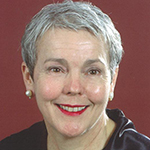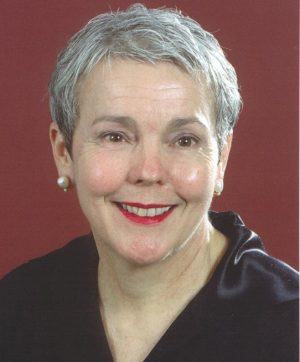
At a recent HARC* forum, Accreditation Canada CEO Leslee Thompson suggested it was time to ‘disrupt’ the way we think about standards and accreditation in order to keep patients safe. Here, Professor Lesley Barclay AO, an educational leader, health services researcher and systems reformer, writes that the way we accredit healthcare may be in need of reform, but it has been the foundation for a giant leap forward in improving the quality and safety of patient care in Australia.

It’s always wonderful to be challenged and to think through the achievements and limitations of our health system and one’s own experience of this. The recent HARC seminar on using accreditation standards to drive improvements in care, led by Accreditation Canada’s CEO Leslee Thompson, was certainly thought-provoking. Sometimes it takes an outsider to be an effective challenger.
Ms Thompson dared us to rethink the current system of accreditation and the use of standards. I understand where the challenge is coming from, and I agree with her comments that the accreditation process has moved from innovation to “bureaucratised busy work”. However I also see wonderful achievements within this “busy work”’.
New ideas
In my long career, I served on the first Council for Safety and Quality in this country. This was a privilege as was the opportunity to learn from former Chair Professor Bruce Barraclough and other colleagues who introduced me to ideas that were new and exciting at the time, and to the work of international experts that helped guide us in those early developments.
I remember working in the healthcare system as a clinician at a time when we never admitted our failures or faults, and certainly never apologised to the patients who were damaged by our system. Evidence was new and exciting but there was no way to compel our colleagues who preferred their traditional ways to introduce evidence-based practice or policies.
The mechanisms within our institutions for examining practice and performance against evidence-based standards were poor or non-existent. -I found this immensely frustrating, as a clinician who became a researcher and worked to generate knowledge that would improve the system. However this contrasts greatly with the present.
The value of scrutiny
I have had the privilege of sitting on the Northern NSW Local Health District Board and on its safety and quality committee. As a board member I had a responsibility to take notice of performance against some useful standards. These were scrutinised regularly by the committee and board to see how we, as a health service, were performing. While some of these standards are about throughput, others are about safety and quality and both were investigated at the committee and board level very seriously.
I also have seen the hard work that goes into accreditation in our small country and regional hospitals. It may be immensely time-consuming, but accreditation acts as a stimulus for us to review and improve care. I think it could be done much better, but I don’t believe that that hasn’t been of some value to this point.
I agree the notion of disruption and of rethinking the “bureaucratised busy work” of accreditation is timely and valuable. There are tasks that could be done by qualified surveyors, such checking physical facilities, fire precautions and the like, and we could use peer review in a more effective way. The notion of ‘disruption’ raised by Ms Thompson is useful, as is the refocus on patient care and the patient journey rather than the institution its facilities and its practices.
However, this refocus work is already happening in some of our health services – from the ground up.
Focus on the patient journey
The North Coast Primary Health Network (PHN) has led, with the enthusiastic support of our local health district, a HealthPathways project. The HealthPathways program originated in New Zealand, but is now also being used in jurisdictions across Australia, and is about to commence in the UK. Local clinicians from acute and primary sectors work together and agree on evidence-based clinical care and locally relevant referral patterns that will achieve this.
In Australia, these are usually developed by clinicians and supported by PHNs in collaboration with their local hospitals. They include patient-focused resources to enable GPs to provide appropriate information during consultations. In Mid and North Coast NSW, clinicians have led priorities that have been supported by 205 localised pathways that are published and available on a regional website. Patients are increasingly recognised as a vital part of the health team, and consumer-focused materials are sought and provided to assist GPs at the point of consultation and are also are available to both patients and GPs on the website.
The clinicians who provide care in a variety of settings and from a variety of practices who develop these pathways have contributed to a practical, patient-focused continuity of service that meets the patients’ needs, not those of the bureaucracy. More than this, the process has become a vehicle for collaboration that has not existed before; primary health care-led and patient-focused. Surely this is a disruptive and ground-up initiative that fits with some of the ideas and challenges we heard expressed at the forum.
I agree we need more disruption, we need more patient-centred collaborative exercises that focus on an evidence-based patient journey. These fit across primary care practices and reach into well managed hospitals where standards can be established more efficiently than with current accreditation processes. However, if my local experience is any judge, the committees that scrutinise safety and quality need to stay and look at ever improving standards that help them.
Professor Barclay AO was Director of the University Centre for Rural Health, North Coast, The University of Sydney, and serves on the Sax Institute Board of Directors. She is a researcher who has worked in regional, national and international development in primary healthcare, maternal infant/child health and capacity building in health worker education systems.
*HARC, the Hospital Alliance for Research Collaboration, drives innovative thinking about current and emerging challenges in the delivery of healthcare. It aims to improve health and hospital services through research.
Find out more
- Read what Accreditation Canada’s Leslee Thompson and the ACSQH’s Margaret Banks told the HARC forum
- Watch our 5 Questions video with Leslee Thompson
- Join the HARC network to receive the monthly e-bulletin and invitations to HARC events
- Read the latest hopsital and health service research in the HARC e-Bulletin
